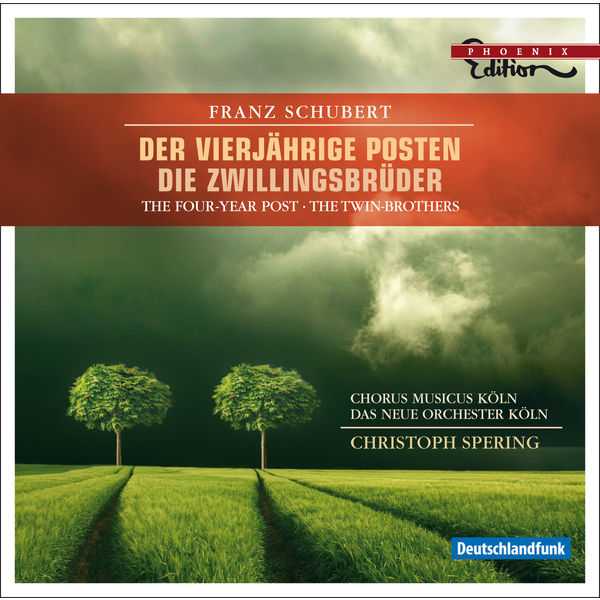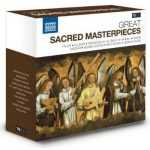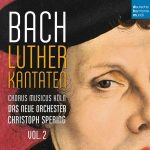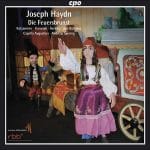
Composer: Franz Peter Schubert
Performer: Aga Mikolaj, Stephan Genz, Andreas Karasiak, Thomas Jakobs, Chorus Musicus Köln
Orchestra: Das Neue Orchester
Conductor: Christoph Spering
Format: FLAC (tracks)
Label: Phoenix Edition
Catalogue: 144PHOENIX
Release: 2008
Size: 256 MB
Recovery: +3%
Scan: cover
Der Vierjährige Posten, D 190
01. Overture
02. Introduction: Heiter strahlt der neue Morgen (Chorus, Kathchen, Duval, Walther)
03. Duet: Du guter Heinrich (Kathchen, Duval)
04. Trio: Mag dich die Hoffnung nicht betrugen (Kathchen, Duval, Walther)
05. Quartet: Freund, eilet euch zu retten! (Kathchen, Duval, Veit, Walther)
06. Aria: Gott hore meine Stimme! (Kathchen)
07. Soldiers’ March: Lustig in den Kampf, lustig aus Kampf!
08 .Ensemble: Um Gotteswillen, er ist verloren! (Kathchen, Kapitan, Duval, Veit, Walther, Chor der Bauern, Chor der Soldaten)
09. Finale: Schone Stunde, die uns blendet (Kathchen, Duval, Veit, Walther, Chorus)
Die Zwillingsbrüder, D647
10. Overture
11. Introduction: Vergluhet sind die Sterne (Chorus, Anton)
12. Duet: Vor dem Busen moge bluhen (Lieschen, Anton)
13. Aria: Der Vater mag wohl immer Kind mich nennen (Lieschen)
14. Aria: Mag es sturmen donnern, blitzen (Franz)
15. Quartet: Zu rechter Zeit bin ich gekommen (Lieschen, Anton, Franz, Schulze)
16. Aria: Liebe, teure Muttererde (Friedrich)
17. Duet: Nur dir will ich gehoren (Lieschen, Anton)
18. Trio: Wagen Sie Ihr Wort zu brechen? (Lieschen, Anton, Franz)
19. Quintet and Chorus: Packt ihn, fuhrt ihn vor Gericht (Lieschen, Anton, Franz, Schulze, Magistrat, Chorus)
20. Finale: Die Bruder haben sich gefunden
Franz Schubert never achieved the success as a composer for the stage that the aspired to, and even since his genius has been fully recognized, his dramatic works have not found their way into the repertoire. This is due not so much to the quality of the music, which is often very high, but to the fact that Schubert devoted himself to a form, thesingspiel, which wasn’t quite an opera, but a play with interpolated musical numbers that fell quickly out of style and has never made a popular comeback. Several Mozart singspiele, particularly Die Entführung aus dem Serail and Die Zauberflöte, have remained in the repertoire due to the large percentage of musical numbers they contain, their dramatic appeal, and their extraordinary music, criteria that Schubert’s work doesn’t meet. It’s good, though, to have excellent recordings such as this one, to allow listeners to become familiar with the composer’s neglected dramatic work. The music is very much in the Classical style, with a strong Mozartian flavor. Schubert’s contemporaries found this music too serious for the light subject matter, but to modern ears it seems delightfully elegant, and often playful. The overtures to these short works are particularly attractive, and certainly merit consideration for inclusion in orchestral concerts. Schubert’s vocal writing is, as would be expected, masterful and gratifying. The pieces receive crisp, spirited performances by Christoph Spering, conducting Chorus Musicus Köln and Das Neue Orchester, who sing and play with the care and energy to present these pieces in the best possible light. The vocal soloists are consistently fine. Soprano Aga Mikolaj and tenor Andreas Karasiak are especially persuasive, and Mikolaj’s silvery tone and her security in the stratospheric reaches of her role are impressive. Phoenix’s sound is clean, bright, and vibrant. The CD should be of strong interest to any Schubert fan and anyone intrigued by operatic literature from off the beaten path.



